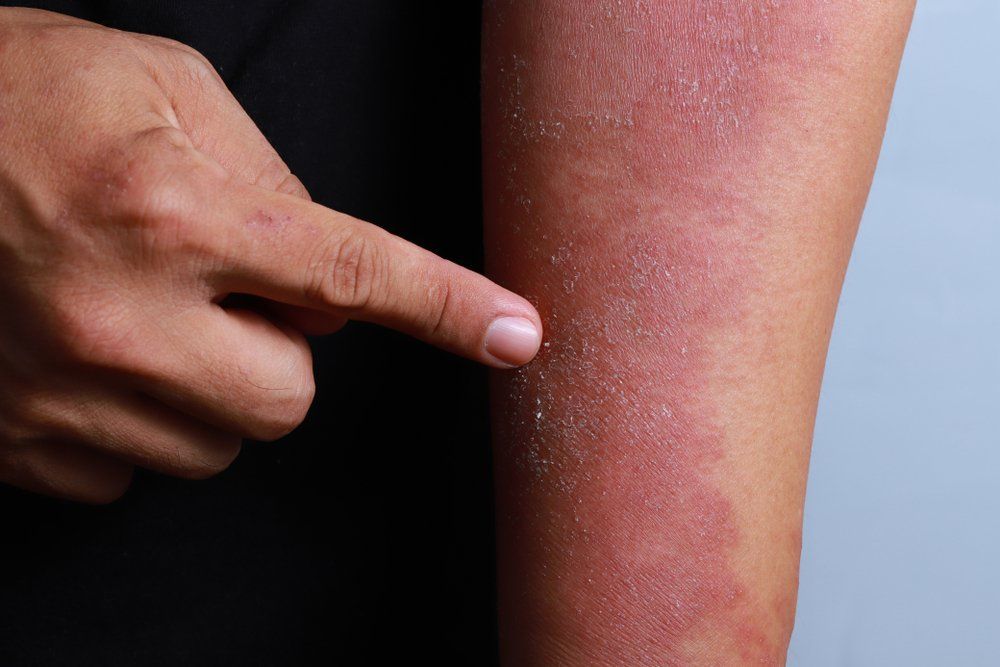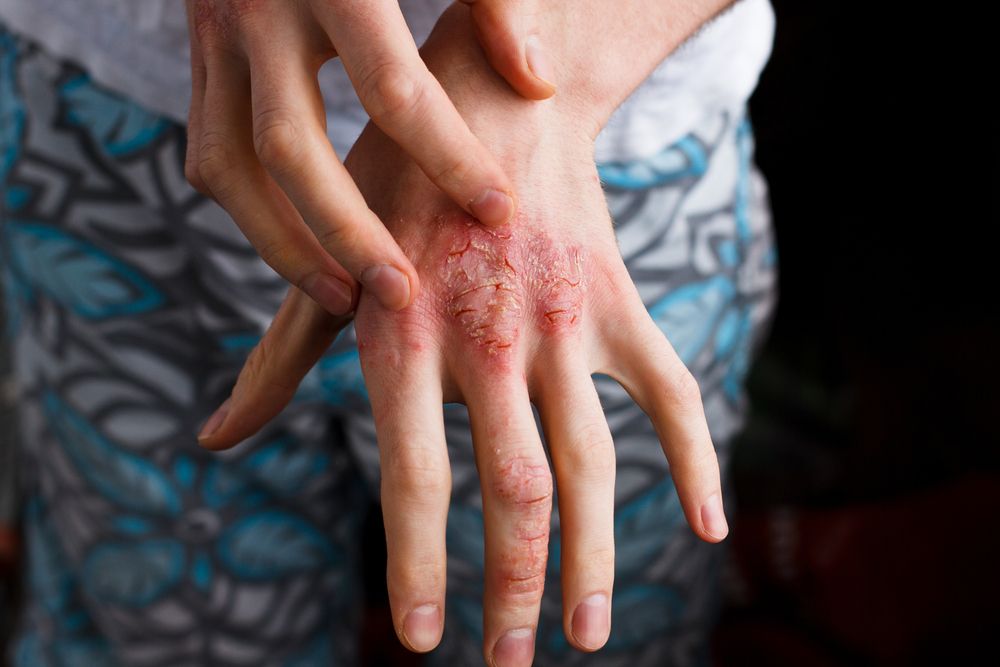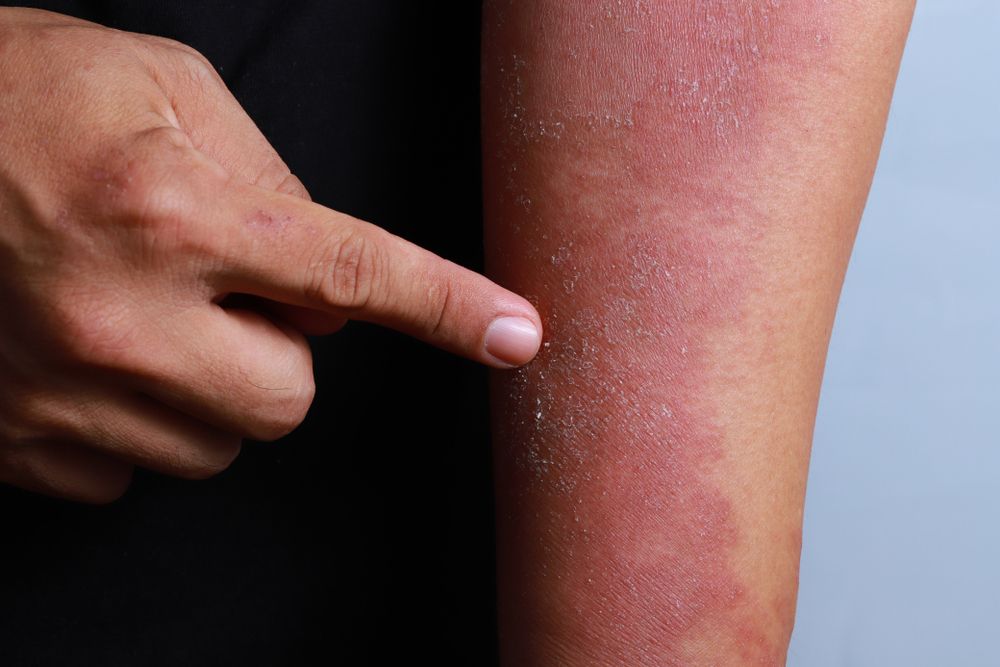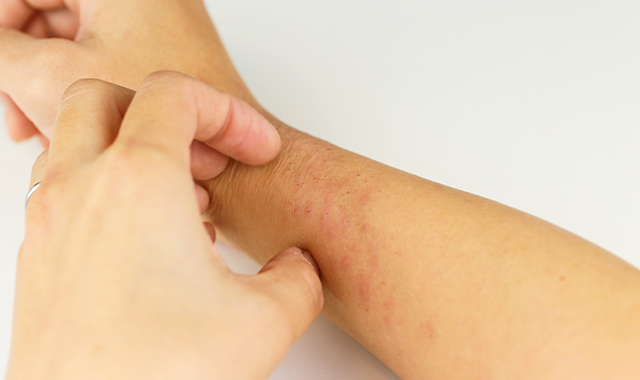- Case-Based Roundtable
- General Dermatology
- Eczema
- Chronic Hand Eczema
- Alopecia
- Aesthetics
- Vitiligo
- COVID-19
- Actinic Keratosis
- Precision Medicine and Biologics
- Rare Disease
- Wound Care
- Rosacea
- Psoriasis
- Psoriatic Arthritis
- Atopic Dermatitis
- Melasma
- NP and PA
- Skin Cancer
- Hidradenitis Suppurativa
- Drug Watch
- Pigmentary Disorders
- Acne
- Pediatric Dermatology
- Practice Management
- Prurigo Nodularis
- Buy-and-Bill
Article
AAD meeting preview for atopic dermatitis treatments
Author(s):
New data and status updates for atopic dermatitis treatments in clinical trials will be presented at the American Academy of Dermatology annual meeting in San Diego this week. In this article, we offer some highlights.
This week in San Diego at the American Academy of Dermatology annual meeting, researchers are preparing to present results from early trials for new biologics for moderate-to-severe atopic dermatitis.
AbbVie's upadacitinib
AbbVie's upadacitinib (ABT-494) is currently in phase 2b trials for atopic dermatitis. The company reported in September that upadacitinib met its primary endpoint in the randomized, placebo-controlled, dose-ranging phase 2b trial. And, in January, the company announced it received breakthrough therapy designation by the U.S. Food and Drug Administration.
Upadacitinib is an investigational once-daily oral JAK1 inhibitor for adults with moderate-to-severe atopic dermatitis.
At week 16, all upadacitinib dose groups (30/15/7.5 mg once-daily) met the primary endpoint of a mean percent change in the Eczema Area and Severity Index (EASI), which indicates that patients experienced statistically significant improvements as compared to placebo. Patients also experienced a reduction in itch within the first week and improvements in skin appearance by week two.
The average change in symptoms from baseline to week 16 was 74 percent, 62 percent and 39 percent for patients receiving the 30 mg, 15 mg or 7.5 mg doses compared to 23 percent for placebo.
A number of patients achieved EASI 75 by 69 percent of patients who received 30 mg; 52 percent of patients on 15 mg and 29 percent of patients on 7.5 mg as compared to 10 percent placebo.
And, a number of patients achieved EASI 90 by 50 percent of patients who received 30 mg; 26 percent of patients of 15 mg and 14 percent of patients on 7.5 mg as compared to 2 percent placebo.
Clear or almost clear skin was achieved by 50 percent of patients who received 30 mg; 31 percent of patients on 15 mg and 14 percent of patients on 7.5 mg as compared to 2 percent placebo.
In terms of itch, 69 percent of patients who received 30 mg; 48 percent of patients on 15 mg and 40 percent of patients on 7.5 mg as compared to 10 percent placebo.
"I am very encouraged that itch reduction was achieved within the first week and that up to half of patients achieved a 90 percent or more improvement in skin lesions (EASI 90) by week 16," said the study's lead investigator, Emma Guttman-Yassky, M.D., Ph.D., in an AbbVie announcement.
This is an ongoing 88-week phase 2b trial. AbbVie's goal is to launch phase three trials later this year. In this study, no new safety signals were detected. The most common adverse events were upper respiratory tract infection, atopic dermatitis and acne. Serious adverse events across occurred at most in 2 percent of patients.
Asana BioSciences novel oral JAK/SYK inhibitor
In January, Asana BioSciences announced that ASN002, a novel once-daily oral JAK/SYK inhibitor achieved clinical efficacy in a proof of concept study in patients with moderate-to-severe atopic dermatitis. This was a double blind, placebo controlled, dose-ranging phase 1b study.
Patients in the trial met the safety and efficacy endpoints at four weeks.
"ASN002 is the only oral compound in clinical development targeting JAK (including Tyk2) and SYK signaling, two clinically validated mechanisms,â said Asana BioSciences president Sandeep Gupta, Ph.D., in a press release.
âDysregulation of Th2 and Th22 cytokine pathways is implicated in the pathogenesis of atopic dermatitis. The inhibition of JAK and SYK pathways diminishes cytokine production and signaling including those mediated by Th2 and Th22 cytokines. The clinical safety and efficacy data to date indicate that ASN002 has the potential to be an important treatment option in atopic dermatitis as well as other dermatological and auto-immune diseases.â
Nearly all patients achieved a 50% improvement in disease severity (EASI 50) at 40 mg and 80 mg once daily at four weeks. Decreases in patient-reported itch, reductions in effected body surface areas were also reported.
New trial results for baricitinib
At EADV last summer, Emma Guttman-Yassky, M.D., Ph.D., of Mount Sinai Medical Center, presented the results of a phase two study showing that once-daily baricitinib (Eli Lilly and Incyte Corp.), significantly improved the signs and symptoms of atopic dermatitis compared with the placebo.
The findings suggests JAK inhibition is a promising treatment strategy for atopic dermatitis. Just about a week before EADV, it was reported in a press release that a phase 2b study of upadacitinib (ABT-494), a JAK1 inhibitor, met its primary endpoint of greater mean percentage change from baseline in Eczema Area and Severity Index (EASI) score for once-daily treatment versus placebo in AD patients at 16 weeks.
Dr. Guttman-Yassky is expected to report new data at AAD this week from a phase two study.
ANB020 by AnaptysBio for AD
AnaptysBio will present findings from its phase 2a trial of ANB020, an IL-33 inhibitor. The findings will be reported by principal investigator Graham Ogg, M.D., of Oxford University in England.
This Phase 2a proof-of-concept trial reports positive efficacy and safety data for ANB020 in 12 moderate-to-severe adult atopic dermatitis patients, as previously disclosed in the interim analysis announced by AnaptysBio on Oct. 10, 2017. The presentation will disclose additional efficacy and safety data through completion of this phase 2a trial.
REFERENCES
"AbbVie's Upadacitinib (ABT-494) Meets Primary Endpoint in Phase 2b Study in Atopic Dermatitis," Sept. 7, 2017, AbbVie press release. https://news.abbvie.com/news/abbvies-upadacitinib-abt-494-meets-primary-endpoint-in-phase-2b-study-in-atopic-dermatitis.htm
"AbbVie's Upadacitinib Granted Breakthrough Therapy Designation from the U.S. Food and Drug Administration for Atopic Dermatitis, Jan. 8, 2018. AbbVie press release. https://news.abbvie.com/news/abbvies-upadacitinib-granted-breakthrough-therapy-designation-from-us-food-and-drug-administration-for-atopic-dermatitis.htm






